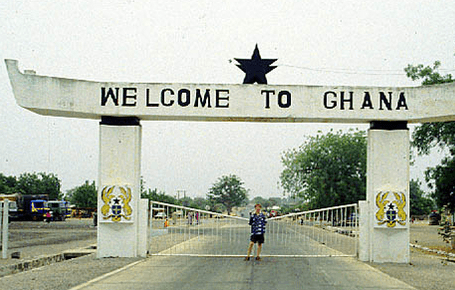African countries charged to ratify AU protocol on free movement of persons
 Panelists at the Africa Prosperity Summit in the Eastern Region, Ghana, have pushed for the ratification of the African Union (AU) protocol on free movement of persons.
Panelists at the Africa Prosperity Summit in the Eastern Region, Ghana, have pushed for the ratification of the African Union (AU) protocol on free movement of persons.
The ratification of the protocol, together with the implementation of the policy on trade in goods and services, investment, intellectual property rights and competition, under the African Continental Free Trade Area (AfCFTA), they said would accelerate intra-trade and ensure the prosperity of the continent and its citizens.
Since the adoption of the protocol by 33 African countries in 2018, only four [Rwanda, Niger, Mali and Sao Tome and Principe] out of the 15 required to make the protocol come into force, have ratified. Signatories to the protocol include Ghana, Angola, Bukina Faso, Central African Republic, Chad, Cote d’Ivoire, Comoros, Congo, Djibouti, Democratic Republic of Congo and Equatorial Guinea.
The rest are Gabon, and Gambia, Guinea, Kenya, Lesotho, Liberia, Malawi, Mozambique, Senegal, Sierra Leone, Somalia, South Sudan, Sudan, Tanzania, Togo, Uganda and Zimbabwe.
The panelists said this ought to change to enable not only goods, but people move across borders to facilitate trade and the implementation of AfCFTA – the largest free-trade area by number of member states, after the World Trade Organisation.
Madam Joy Kategekwa, Senior Strategy Advisor, United Nations Development Programme (UNDP), said the movement of people across borders “is what would ultimately put money in the pocket of most Africans.”
She made a case for the acceleration of the ratification of the AU protocol on free movement of persons, noting that in 2017, about 19 million Africans left their respective countries to other African countries, but received about five million within the same period.
Mad Kategekwa said: “We’re talking about accelerating the implementation of AfCFTA and we can’t do that when people are not moving. So, free movement is definitely part of the architect of AfCFTA especially for those engaged in trade-in-services.
“So far, we have four ratifications and it has become important to increase the scale of ratifications, so, can we widen it to investors, traders and business persons in general,” The UNDP Senior Strategy Advisor said.
A Deputy Minister of Trade and Industry, Herbert Krapa, also underscored the essence of accelerating the ratification of the AU protocol on the free movement of persons for the success of AfCFTA and Africa’s prosperity.
He, therefore, urged the AfCFTA Secretariat to have an intentional agenda that allowed ministries of National Security and Ministries of Foreign Affairs, work together with various regional bodies to ramp up efforts to ratify the protocol.
Mr Krapa said: “Paying political attention to the ratification of the protocol is very important… and we need a leader who will champion the facilitation of this protocol,” to unleash the potential of the free trade agreement.
The President of the Ghana Union of Traders (GUTA), Dr Joseph Obeng, in an interview with the Ghana News Agency, called for the removal of all barriers to enable people to trade freely and easily across the continent.
Dr Obeng, however, urged that the removal of the barriers to trade under AfCFTA including the free movement of persons was done in accordance with the Rules of Origin – the criteria needed to determine the nationality of a product.
He said: “Free movement of persons is important, but let’s ensure that we don’t just open the borders for people to even trade in goods that are imported from elsewhere. It should be closely monitored and put under the context of AfCFTA.”
Mad Emily Mburu-Ndaria, the Director of Trade in Services, Investment, Intellectual Property, Rights and Digital Trade, AfCFTA Secretariat, said they were doing the necessary trade facilitation to the trade pact successful.
“To implement AfCFTA we’re looking at how to enhance even elite passport but our focus business people to be able to train and assist them move across the borders easily and without delays,” Madam Mburu-Ndaria.
The Comptroller General of the Ghana Immigration Service, Mr Kwame Asuah Takyi, noted that migration policies including the free movement of persons were to ensure development and the alleviation of poverty.
Nonetheless, he asked that while efforts were being made to ensure free movement of persons across the continent, security implications were made paramount due to some unrest in some countries.
Source: GNA
